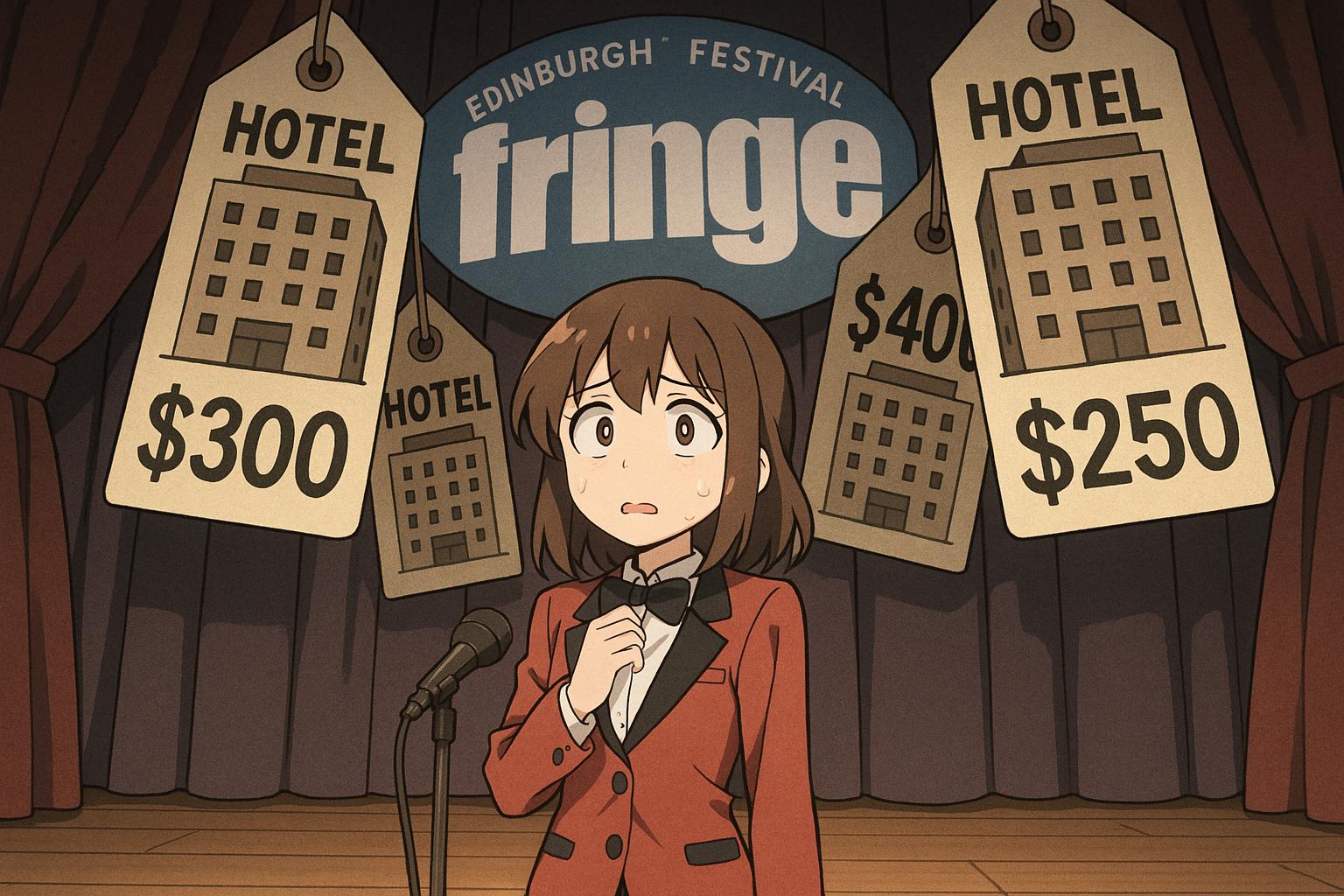The Edinburgh Festival Fringe is gearing up for what may be one of the most ambitious line-ups in its almost eight-decade history, yet the festival is simultaneously grappling with a crisis that threatens its very existence. As leading figures within the arts community speak out ahead of the 2025 programme launch, it has become apparent that escalating costs—particularly in accommodation—are casting shadows over this renowned cultural event. This year's concerns raised by industry veterans hint that the spirit of the festival could be at stake if drastic measures are not taken.
The economic landscape is proving challenging, compounded by soaring accommodation prices that have reached unprecedented levels. Some hotel and short-term letting prices have reportedly soared to as much as £7,734 per night during the festival's peak, primarily due to the coinciding Oasis concerts at Murrayfield Stadium. These circumstances are raising alarm bells among creators, who fear that such astronomical costs will lead to a significant drop in attendance from both performers and audiences alike. The increased financial burden is causing many artists to consider shorter, less financially risky engagements at the festival, thus diluting the rich array of performances that the Fringe is traditionally known for.
The repercussions of this crisis are not merely anecdotal. Accommodation costs in Edinburgh have reportedly surged by as much as 300% over the past six years, effectively pricing out both artists and festival attendees, as detailed by the Fringe Society's evidence presented to the Scottish Parliament. With certain apartments charging more than £1,000 a night, many performers are debating whether the value of attending the Fringe still outweighs the costs involved. Katy Koren, artistic director of the Gilded Balloon, cautioned that while the financial structure of the festival isn't fundamentally flawed, it is undoubtedly at a perilous crossroad, describing the situation as one where the festival's appeal risks collapse if trends continue.
New regulations surrounding short-term rentals, introduced in late 2023, are exacerbating this situation by limiting lodging options and further driving up prices. With the new laws aimed at curbing the rampant growth of platforms like Airbnb, the changing dynamics are creating a logistical nightmare for festival-goers. Not only do these measures reduce the availability of affordable options, but they also indirectly fuel resentment among locals who can see their city transformed into an expensive playground, catering primarily to visitors during the festival season.
Tony Lankester, the newly appointed chief executive of the Edinburgh Festival Fringe Society, has characterised the current state of the festival as one where its very success is being taken for granted. The prevailing view among industry stakeholders is that immediate action is essential; otherwise, the festival could see its unique cultural identity diminished irreparably. Veteran venue operator Anthony Alderson echoed this sentiment, stating that the Fringe is walking a "precarious tightrope" that grows ever more treacherous each passing year. Such sentiments reflect a collective urgency within Edinburgh's arts ecosystem to address the quickly changing economic circumstances.
Industry producers are concerned that the consequences of these intersecting crises stretch beyond just the Fringe; they pose a direct threat to all of Edinburgh's summer festivals, which collectively contribute over £200 million to the local economy. As James Seabright highlighted, the inability to keep the festival accessible may lead to a cascade effect, resulting in diminished attendance and a loss of cultural vitality that underpins the city during this vibrant period.
The Edinburgh Festival Fringe finds itself at a critical juncture. With profound issues impacting accommodation and accessibility continuing to unfold, the celebrated festival may be forced to confront uncomfortable truths about its viability in the years ahead. As the curtain rises on the next chapter of this iconic event, the hope is that both local stakeholders and festival organisers will work collaboratively to ensure that Edinburgh remains a beacon of creativity and cultural expression, rather than allowing economic concerns to overshadow the art itself.
##Reference Map:
- Paragraph 1 – [1], [7]
- Paragraph 2 – [1], [2], [5]
- Paragraph 3 – [3], [6]
- Paragraph 4 – [4], [5]
- Paragraph 5 – [1], [5]
- Paragraph 6 – [6], [7]
Source: Noah Wire Services
